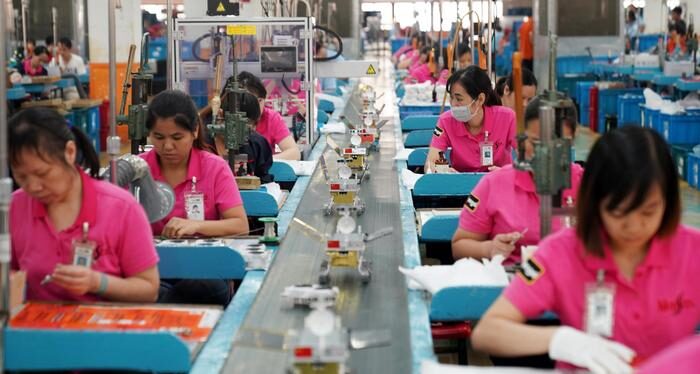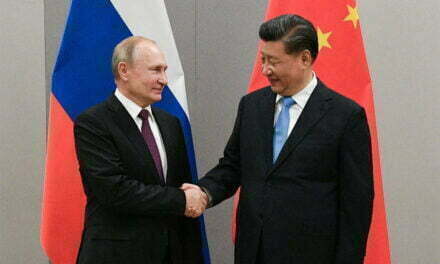
Can China Be Stopped?

At the end of the 20th Century, I wrote that the 21st Century would belong to China. By that time, I had become what was once called “an old China hand” for about a dozen years – most notably serving for three years as Foreign Investment Advisor to the City of Harbin, the capital of the northernmost province of Heilongjiang. It was a two-way commission – to introduce American investors to Harbin and to seek opportunities in America for Chinese investors.
My assessment of China’s potential was based on primarily five things.
Ending economic isolation
The once isolated and dogmatically Mao Zedong regime had opened to the world in the early 1970s. While the Middle Kingdom remained a political dictatorship, it evolved away from the most severe aspects of economic central control and planning. It started to take on more western-style (capitalistic) policies.
China began doing business with the international community in more traditional ways – foreign companies could establish operations and they could take profits out of the country. Tourism flourished. Make no mistake about it, the reforms were far from western standards and traditions, but a lot more accommodating than the days of the murderous Cultural Revolution.
Lower wages
At the time of the visit to Beijing by President Nixon, China’s failing economy was producing some of the lowest wages on earth – far lower than any industrialized western nation. America, on the other hand, had some of the highest industrial wages – due to strong economic times and the combination of powerful unions and weak management. When China opened to foreign business, it was like an economic dam had burst. Jobs flowed to China.
For example, American auto workers were among the highest paid industrial workers in the world. While that seemed to be a good thing for a time, it had unanticipated – or ignored – circumstances. It made the foreign job market – and eventually robotics – viable options. The unions’ victories were short-lived as the American auto industry collapsed under competition from abroad. Americans were buying foreign cars and American companies were having domestic brands manufactured abroad. This trend crossed the entire industrial base.
Today, things are beginning to level off a bit, as American (and western) wages have stagnated or actually come down relative to third-world countries, and China’s wages have risen. Chinese imports have been slowing down a bit as American wages are reaching parity to China’s wages. But for the moment, it is still advantage China.
Massive resources
Following World War II, Japan’s economic infrastructure was in shambles. It was a small island with extremely limited resources. It did have low wages, however. In a generation, Japan had become one of the most powerful economies in the world – competing successfully with the American auto industry and the German camera industry. They have since become a high-tech powerhouse.
China has advantages that Japan did not. The Chinese population provides one of the biggest markets for international business. While it produces for the world, it is a huge consumer – mostly untapped.
China is rich in natural resources – unlike Japan. The Beijing government is loath to aggressively consume its own resources. Rather, uses its vast cash wealth to negotiate and purchase resources all over the world – including from the United States. While resources grow more expensive in much of the industrial world, China has a relatively cheap supply for years to come.
Creditor nation
While the United States is a debtor nation – and going deeper every day – China has been the world’s banker. Currently, Beijing holds $1.1 trillion of America’s IOUs.
Workforce
China not only has a huge workforce, but they are also very proud of their nation. They work under conditions not acceptable in the United States, but they work hard for the Middle Kingdom. America has the advantage of machine technology, but China is developing a western style industrial base. To understand the productivity of the Chinese worker, we need to look back at World War II to see how worker enthusiasm created enormous productivity. It would be a mistake to dismiss the Chinese workforce as a drag on their economy.
Summary
We can talk about American superiority but it is becoming more and more an exercise in reminiscence. China is building its economic power through new commercial relationships with the world’s nations – including America’s traditional allies. Beijing is also building a first-class military as a backdrop for its economic and diplomatic expansion.
Unless the United States makes a dramatic change in culture – one more supportive of a national unity and purpose – there is little chance of overtaking Beijing’s ambition to be the number one nation in the world – economically, politically and militarily.
So, there ‘tis.


























The only way to stop China is to drop one well placed nuke and wipe the country out
Larry,
The above comment is a representative of the Republican ( prolife) Party, and your readers.
Is it any wonder republicans have only won the popular vote once over the last 30+ years?